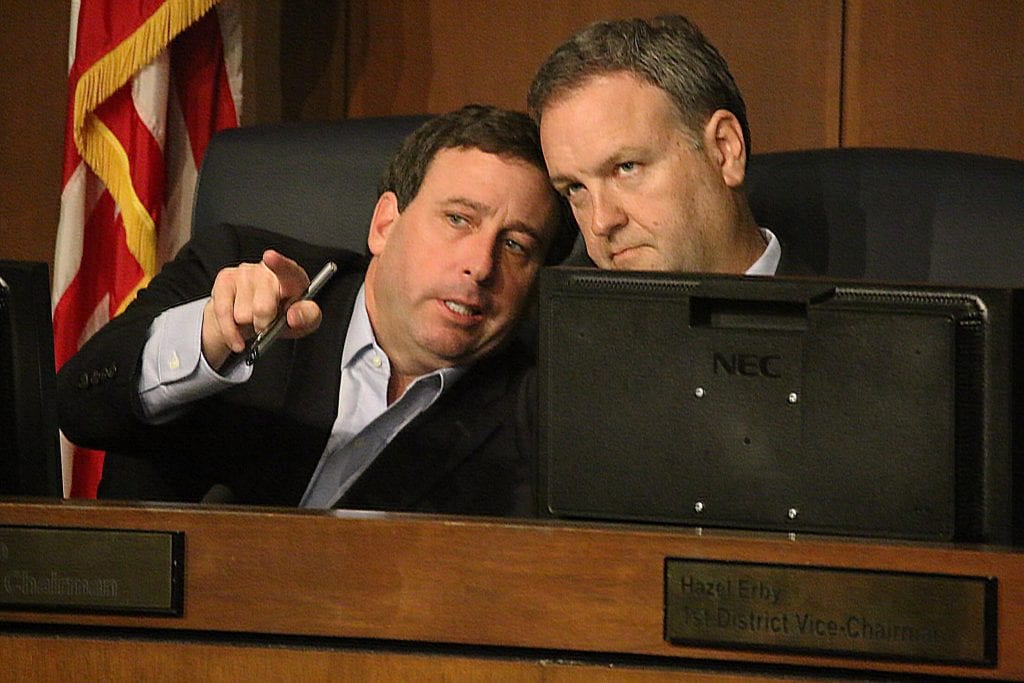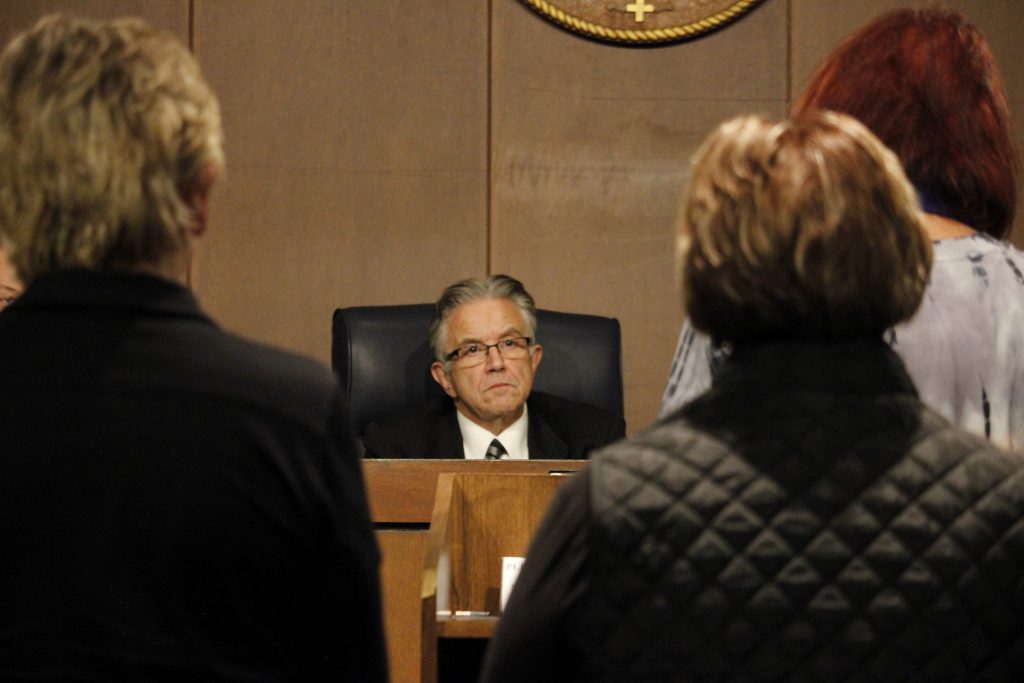By Gloria Lloyd
News Editor
glorialloyd@callnewspapers.com
The St. Louis County Council has to make major decisions on whether to cut services or raise taxes by next year.
The county can continue offering current services without any budget cuts this year with a $772 million recommended budget that carries a $10 million operational deficit.
But tough choices will have to be made over the next year on how to continue services without raising taxes, County Executive Steve Stenger said in his budget memo.
“The revenue forecast is not good,” council Chairman Sam Page, D-Creve Coeur, told county employees who came to the council this month asking fora raise. “It’s a structural deficit.”
The county budget has had a structural deficit for nearly a decade, since the Great Recession and changes to state tax law ate into its historical revenues.
But with what the county budget director called the “day of reckoning” not coming until 2020, a few events have allowed county officials to avoid budget cuts until now. First, the River City Casino opened in 2010, guaranteeing the county $10 million in new revenue each year. Second, the county has not given raises most years.
Third, the passage last year of Proposition P, a countywide sales tax, adds to the general fund and allowed some employees to get raises, including police.
But raises are not on the horizon for county employees this year or any other year without a drastic change in revenues, county Budget Director Paul Kreidler told the council in a Nov. 7 hearing. That means county employees — other than those covered under Prop P — have gone without a raise for eight of the last 10 years.
The tax rate for 2019 was already approved in September, with no change in the rate of 48.9 cents per $100 of assessed value. The council could decide to roll up the county’s tax rate by up to 6 cents next year during a reassessment year, or redirect pennies of the tax rate from special funds to the general fund. From 1989 through 2004, the county’s tax rate was 58 cents per $100.
The “budget is sound and will remain so,” Stenger’s Chief of Staff Bill Miller said in a statement.
Stenger does not recommend that the council raise the tax rate, which has consistently fallen since its peak in 1984.
Although growth in property values used to organically result in more revenues to the county since people paid more as their property values rose, a change to state law in 2008 means that if assessed valuation increases, the tax rate has to fall.

The tax rate has decreased in 2015 and 2017 under that formula, at the same time that property tax revenues are just now building back up to pre-recession levels.
During the Democratic primary campaign for county executive, Stenger’s challenger Mark Mantovani alleged that the county executive wanted a tax increase. But Stenger pushed back against that idea.
“We would have made a move to raise taxes if we wanted to raise taxes,” Stenger said. “We have a AAA bond rating with over $100 million in reserves, and I don’t foresee a time when St. Louis County is going to raise taxes… We’re not going to be raising taxes.”
Stenger has boasted that since he took office, he has cut over $300 million, or about $30 million a year in recurring spending calculated over the next decade.
Responding to Mantovani claiming that spending was out of control at the county level, Stenger said, “There’s no issue with the budget, that’s just a lie. It’s a lie, I don’t know what else to tell you — it’s a lie, it’s not true. I’ve not raised taxes since I’ve been in office, and there’s not even an inkling in my mind to do that. There won’t be any tax increases. We’ve made over $30 million in cuts. We’ve saved $300 million alone on the pension. We don’t need a tax increase, we’ve saved all the money.”
If the council decided to raise the property tax rate to the tax-rate ceiling previously approved by county voters, the county would add a total of $42 million in annual revenue to the county across several special funds — $14.7 million a year of revenue to the general fund, $20.2 million to the health fund, $4.1 million to parks and $3.6 million to the road and bridge fund.
“Our new normal is property tax is flat,” Kreidler said. “Property tax will provide a consistent amount of revenue, but it will not produce any growth outside of inflationary adjustments.”
The one highlight of the budget was the Prop P sales tax, which went into effect in October 2017. Since 2018 was the first full year of the tax, the county could only estimate how much the sales tax would take in. It came in above expectations with $50 million, or $6 million over the estimated $44 million.
Of the different parts of the budget, property tax currently provides 14 percent of the total budget, compared to 51 percent through nine different county sales taxes.
To give employees a 3-percent pay hike for just one year, it would cost $4 million a year in recurring expenses, which the county doesn’t have under the current budget, Stenger said.
Officials made it clear that the county will not be able to grow itself out of the budget hole even if revenues improve or the economy grows.
“So the idea of growing out of this deficit from a revenue standpoint does not pan out because we’re in the best economy in the last 20 years, and we’re not growing out of it,” said 7th District Councilman Mark Harder, R-Ballwin.
But no council member indicated at the meeting what they want to do, other than not raise taxes.
“That is the tough question — how do we right-size county government to live within our means and keep providing the same services, or you’re going to have to increase revenues some way, preferably not raising taxes,” said 3rd District Councilwoman Colleen Wasinger, R-Huntleigh. “But those are the choices we’re faced with.”
Stenger did not submit a formal plan on how to tackle the budget deficit, but in his budget letter he asked the council to work with him as soon as possible in the new year to figure out what to do for 2020.
“He said in his letter that we can live with his budget as is, or we can start cutting now, and I believe what he said, his words were, ‘I believe we should not wait,’” Kreidler said. “So to me that means come January, we start doing something.”
































